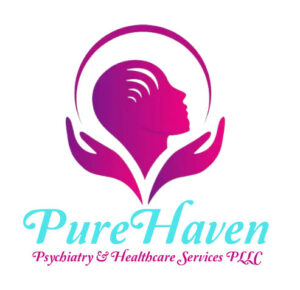Can ADHD Get Worse with Age? (Progression and Adult Challenges)
If you’ve ever wondered, “Can ADHD get worse as I get older?”, you’re not alone. While Attention-Deficit/Hyperactivity Disorder (ADHD) is often thought of as a childhood condition, its symptoms can persist—and even become more complex—well into adulthood. In fact, many adults are now discovering that the challenges they face with focus, memory, and emotional regulation may actually stem from undiagnosed or worsening ADHD. But does ADHD truly worsen with age, or does life just become more demanding? Let’s explore how aging can impact ADHD and what you can do about it.
Table of Contents
- Understanding ADHD in Adulthood
- Does ADHD Worsen Over Time?
- Signs That ADHD May Be Getting Worse
- ADHD in Older Adults
- How Aging Affects ADHD Symptoms
- When to Seek Help or Reassessment
- Managing ADHD at Any Age
- Get Expert ADHD Support at Pure Haven Psychiatry
- Final Thoughts
1. Understanding ADHD in Adulthood
ADHD isn’t just a childhood disorder. About 4–5% of U.S. adults have ADHD, many undiagnosed. Adult symptoms often include less hyperactivity but more restlessness, forgetfulness, and disorganization. As responsibilities increase, struggles with time management and planning grow, leading many to wonder, “can ADHD get worse over time?” While it doesn’t worsen like a disease, its impact can feel stronger without proper support.
2. Does ADHD Worsen Over Time?
The short answer: ADHD itself doesn’t “worsen” like a degenerative disease, but its effects on daily functioning can intensify, especially without treatment. As adults take on careers, families, and financial responsibilities, the demands on the brain’s executive system increase. Without proper coping strategies or support, ADHD symptoms that were once manageable can become overwhelming.
So, can ADHD get worse with age? It can certainly feel that way. While hyperactivity often declines, issues like impulsivity, inattention, and emotional dysregulation can become more pronounced in adult life.
3. Signs That ADHD May Be Getting Worse
If you’re aging with ADHD, here are signs that your condition may be more difficult to manage than before:
-
Increased forgetfulness and memory problems
-
Difficulty completing tasks or maintaining focus
-
Chronic lateness or poor time management
-
Mood swings or emotional outbursts
-
Trouble maintaining relationships or job performance
-
Growing reliance on stimulants or caffeine to stay productive
-
Feeling overwhelmed by minor tasks
Many adults report feeling “burned out” or “scattered” despite having been relatively high-functioning in their youth. This shift can be alarming but is often a cue that it’s time to reassess your ADHD management plan.
4. ADHD in Older Adults
ADHD in older adults is an emerging area of study, raising important questions like “can ADHD get worse with age?” For some individuals, symptoms may surface for the first time in midlife or later—a phenomenon known as late-onset ADHD. For others, it reflects a continuation of childhood ADHD that was never diagnosed or treated.
Older adults with ADHD might experience:
-
Increased distractibility
-
Difficulty retaining new information
-
Trouble following conversations
-
Low frustration tolerance
-
Anxiety or depression as co-occurring conditions
If you’ve ever wondered, “can ADHD get worse later in life?”, the reality is that while the core condition doesn’t necessarily deteriorate, its effects can become more disruptive without proper support.
5. How Aging Affects ADHD Symptoms
Aging doesn’t cause ADHD, but it can shift how the symptoms show up. Here’s how:
-
Executive Dysfunction Worsens: Managing complex responsibilities becomes harder with age-related cognitive changes.
-
Memory Becomes a Bigger Issue: Many adults with ADHD already struggle with working memory—aging can intensify this.
-
Coping Mechanisms Wear Thin: Strategies that worked in your 20s may not suffice as life gets more demanding.
-
Comorbidities Increase: Conditions like anxiety, depression, and sleep disorders often develop or worsen, complicating ADHD treatment.
So while ADHD may not “progress” in a traditional sense, the challenges it brings can certainly become more disruptive without treatment.
6. When to Seek Help or Reassessment
If you’ve been asking yourself, “Can ADHD get worse?”, and are noticing a change in your ability to cope, don’t ignore the signs. It may be time to:
-
Revisit your diagnosis with a psychiatrist or mental health professional
-
Adjust your medication or explore new treatment options
-
Consider cognitive behavioral therapy (CBT) to manage ADHD symptoms
-
Address coexisting issues like anxiety or depression
-
Develop updated strategies for organization, time management, and focus
Untreated adult ADHD can lead to chronic stress, job challenges, strained relationships, and low self-esteem. While ADHD itself may not be degenerative, the impact on daily life can grow significantly over time—especially without the right support. Seeking help early can make all the difference in maintaining control and quality of life.
7. Managing ADHD at Any Age
If you’re concerned that ADHD symptoms are getting worse, know that there are practical and effective ways to manage them at any age. Managing ADHD as you grow older requires a personalized, evolving strategy backed by professional support. Medication—both stimulants and non-stimulants—can still be effective, although your doctor may adjust the dosage based on age-related changes. Therapy options such as cognitive behavioral therapy (CBT), ADHD coaching, or mindfulness can help you manage stress, develop healthy routines, and stay focused. Lifestyle changes—like consistent exercise, good sleep hygiene, and structured daily habits—also support brain function and help minimize symptoms. If you’re wondering can ADHD get worse with age, the key takeaway is that its impact can grow—but with proactive care, those challenges can be successfully managed. ADHD doesn’t have to control your life, regardless of your age.
8. Get Expert ADHD Support at Pure Haven Psychiatry
Whether you’re newly diagnosed or suspect your ADHD symptoms are getting worse with age, Pure Haven Psychiatry is here to help. Our compassionate team specializes in adult ADHD evaluations, medication management, and therapy tailored to your needs. If you’re struggling with focus, forgetfulness, or emotional overwhelm, don’t wait. Aging with ADHD doesn’t mean losing control—it means learning to manage your mind with support.
9. Final Thoughts
While ADHD doesn’t worsen in the way progressive diseases do, its impact can grow more intense with age—especially when left unmanaged. Life transitions, increased responsibilities, and natural aging can all make symptoms feel more overwhelming. The good news? With the right support, tools, and treatment, managing ADHD at any stage of life is entirely possible. If you’re noticing changes in your focus, memory, or emotional regulation, it may be time to reassess your needs. You don’t have to navigate adult ADHD alone—help is available, and improvement is within reach.
Disclaimer
This blog post is for informational purposes only and does not substitute professional medical advice, diagnosis, or treatment. Always consult your healthcare provider with any questions regarding a medical condition.

